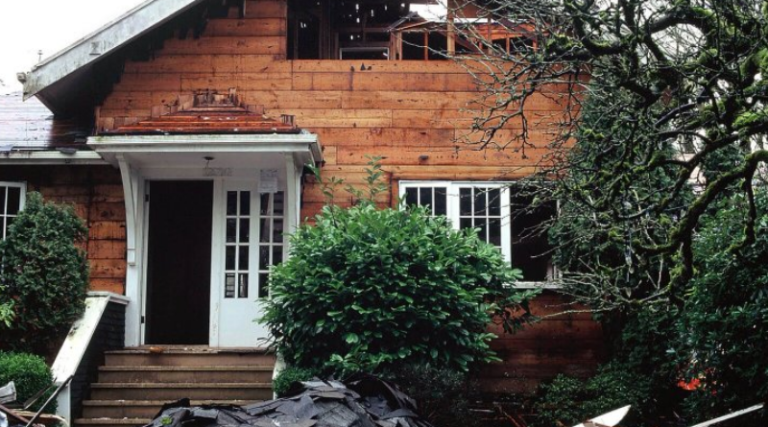The Canadian housing market is facing a crisis. Problems facing the Canadian majority sector were highlighted in the state budget presented in the lower house on April 7. The Justin Trudeau government has introduced measures to address the issue, such as preventing immigrants from buying property. a period of two years.
According to the Canadian Real Estate Association (CREA), the average price of a house in Canada in February stood at $ 816,720 Canadian dollars (€ 598,000). The CREA, with a membership of nearly 130,000 housing workers, is 20.6% higher than in the same month in 2021. Medium national costs have been reduced by $ 178,000 excluding Vancouver and Toronto, two of which are very effective and high. the most expensive housing markets in the country.
That rate rose 44 percent in Canada between December 2019 and February 2022. Professor Assistant Professor of Urban Planning at the University of Montreal, Jean-Philippe Meloche, says the increase was already evidence before Covid-19, but the epidemic brought the issue. forward. “A lot of Canadians were fixing things. At the same time, the construction industry needed labor and building materials that were not readily available. And many people are also buying land outside of major urban centers. This only aggravates the problem. ”
The Canadian government budget includes about $ 4 billion to build at least 100,000 new homes over the next five years, double taxpayers’ new purchases and monthly subsidies for people who can afford affordable rent. Rates will also be increased on a regular basis: the sale of real estate for a profit after less than one year of ownership.
Finance Minister Chrystia Freeland, presenting the budget, said: “Our economy is made up of people, and people need housing. Our problem is this: Canada does not have enough homes. We need more of them, soon. ” Also included in the budget is a ban on non-Canadians – as well as non-Canadian companies – from investing in real estate over the next 24 months. Exemptions will be granted to permanent residents, asylum seekers and those with work or study permits.
New Zealand introduced similar measures in August 2018. Similarly, foreigners are barred from acquiring land in the Åland Islands in Finland. The debate over the presence of foreign buyers in the Canadian housing market is new: the provinces of British Columbia and Ontario already have a 20% tax rate on such purchases. However, the coalition government has now moved forward and proposed a ban on the purchase of foreign buildings across the country.
The issue has caused a stir, with some saying it is a step in the right direction as part of a series of initiatives designed to combat the housing crisis. Nicola St. John of Bosley Real Estate told CTV News that non-citizens often make high-profile offers for the area, which distorts the Canadian consumer market.
“A political system beyond work”
However, there are also objections to the government’s plan. One sticky point is that the specific requirements for release have not been clearly defined, which opponents fear could open the door to further loopholes. However, much of the controversy surrounding this proposal is based on its actual effect: “There are really not enough foreign buyers to make it possible for this to have a significant impact. To me it seems more of a political system than a working one, ”Meloche said.
Tsur Somerville, a professor at the Sauder School of Business at the University of British Columbia (UBC) and director of the UBC Center for Urban Economics and Real Estate, tells EL PAÍS: At the same time, prices have risen. This ban will not change the game. ” A report published by the Baker Insights Group shows that non-Canadian citizens bought only 1% of all properties sold by 2020. A year after New Zealand imposed a ban on 2018, home prices increased by 12%; by 2020 and 2021, the increase was 18% and 23%, respectively.
The House of Commons of Canada will vote on the budget soon. The ban on imports was a promise made by the Trudeau Liberal Party in the last September election. Opposition Conservatives made a similar campaign promise when the New Democratic Party, the Liberals with which it formed a political coalition, raised the 20% tax rate at the national level.
“Taxes have an impact, although they are tedious and temporary. In addition, immigrants tend to look elsewhere and do not buy any old furniture, ”said Meloche. Somerville admits: “We have already seen these taxes in high-interest cities, such as Vancouver and Toronto. They had little effect. The housing crisis is, in essence, a family affair, although it is easier to identify somewhere else than to identify ourselves. ”
Somerville conducted a joint study with Andrey Pavlov, a professor of finance at Simon Fraser University’s Beedie School of Business. The report shows that after British Columbia levied property taxes, house prices dropped by 3% to 5% in Vancouver in downtown areas preferred by foreign buyers. According to the real estate agency Re / Max Canada, there are almost no homes purchased by non-Canadian residents north and east of Vancouver in the first five months of 2021, but 60 properties worth at least $ 5 million were sold in those areas. .
Steve Lafleur, a commentator for the Fraser Institute Public Policy, wrote in a statement that the Liberal government, instead of focusing on eliminating these so-called “bad” consumers, should focus on creating and reducing red tape that disrupts the sector. . Canadian National Housing Council recommends investment of $ 6.3 billion


